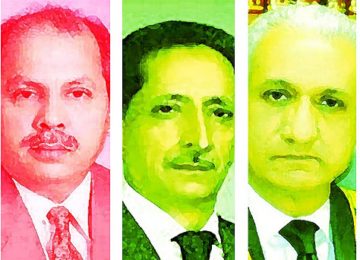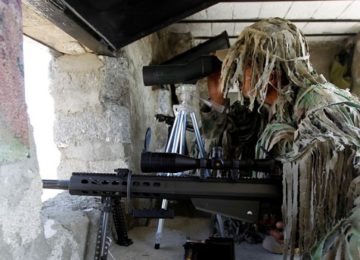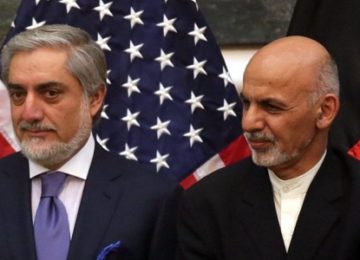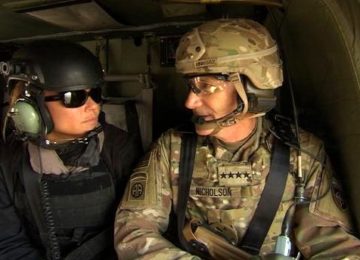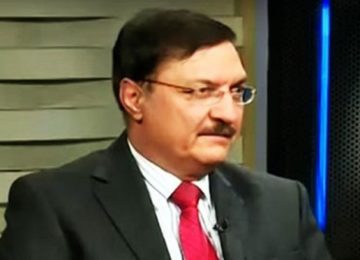By Tahir Khan
ISLAMABAD — Afghan Taliban’s political envoys are in contact with countries, who exchange their messages between the Taliban, the U.S. and the Afghan government, the writer has learnt during a series of contacts with the people familiar with this development. The Taliban, however, do not have direct communication with the two-headed government in Kabul, as recent reports suggested, they insist.
“The Taliban also have interaction with some member countries of the UN Security Council and routinely exchange views on political options. These contacts are aimed at exploring ways how to move forward,” the Taliban sources said.
“We and those countries do not want to share anything with the media as it could harm things before any progress. The main focus is how to achieve some results to promote political dialogue,” they further added.
The comments come at a time when President Donald Trump has stepped up pressure on the Taliban. Also, after the announcement of his strategy for Afghanistan and South Asia, he briefly touched upon Afghanistan in his first speech at the UN General Assembly on Tuesday.
“Last month I announced a new strategy for victory in the fight against this evil in Afghanistan. From now on, our security interests will dictate the length and scope of military operation, not arbitrary benchmarks and timetables set up by politicians. I have also totally changed the rules of engagement in our fight against the Taliban and other terrorist groups,” Trump had told the General Assembly.
On Thursday, Mr Trump met his Afghan counterpart Ashraf Ghani in New York and claimed the U.S.-led foreign troops and Afghan forces are making progress.
“We are hitting them (Taliban) very, very hard and very, very effectively, and we really have no choice but to do it. We’re leading a lot of wonderful Afghan troops who are fighting very hard. We were just discussing that, and great progress is being made,” the U.S. President said at a joint media interaction with Mr Ghani.
On his part, the Taliban spokesman Zabihullah Mujahid, snubbed Mr Trump for his claim of military gains and said the Taliban fighters are “making progress and we still control all areas we have taken from the U.S.-backed forces. We capture new areas daily,” the Taliban spokesman said in response to Trump’s remarks.
He played down any possible impact of the new U.S. strategy on the Taliban military operations and said Taliban field commanders and foot soldiers have kept on their “Jihadi policy” with new plans against the Americans.
Mujahid refused to offer any comments when questioned if the Taliban and Trump’s policies have closed doors for peace negotiations.
However, credible Taliban sources have confirmed indirect messaging with the U.S. and Afghan government with the facilitation of countries which have contacts with the Taliban’s political representatives.
The Qatar political office declined to answer to queries as they do not talk to the media in view of the closure of their office. The office was closed in July 2013 just days after its opening when then Afghan President Hamid Karzai raised objections.
The Taliban’s messaging has not yielded any results as the U.S. is not coming up with a positive response to the Taliban’s repeated calls for direct talks at initial stage, a Taliban official, who is aware of the process said.
“One thing is very clear that there is no progress on political front because the U.S. has not showed any willingness to talk to us on a timeframe for the withdrawal of foreign troops. We are ready for face-to-face talks with the U.S. to discuss a time-frame to end invasion. This is not true that Taliban want withdrawal of troops as a precondition for peace talks. We want discussions with the U.S. if they plan to quit and when,” he said.
He said two things are very important; one “we have been trying to focus on political process as this is now official policy of the Taliban. We are discussing this option with every county. If the U.S. agrees with this suggestion, we are ready to sit down with them to talk about a timeframe for the withdrawal of the troops. We also want a guarantor for such arrangement. The role of Russia, China, neighbouring and regional countries is very important for this purpose. Russia and China could be guarantors. The UN and OIC active role is also required for such development,’ he said.
He said “Taliban are supporting unofficial consultations among Afghans to promote political process but unfortunately Afghan government is also creating hurdles to stop such interaction, consultations and conferences. Afghans should be allowed to sit and discuss how to bring peace in the country? Taliban have participated in several unofficial conferences in other parts the world but unfortunately the Afghan government tries to stop these consultations. The Afghan government has previously opposed meetings by Pugwash.
When asked to why the Taliban are not ready to talk to the Afghan government like the Hizb-e-Islami Chief Gulbuddin Hekmatyar has done, he said top priority for the Taliban is end to the invasion and not to get any share in the government.
“We cannot start any dialogue with the Kabul administration until the Taliban and the U.S. agree on a mechanism to end the invasion. Power sharing is not important for us but ending invasion is significant,” he said.
“We have support the idea that all Afghans should be part of the system but when the issue of invasion is resolved. This has to be resolved. We think the U.S. silence on end to the invasion is the major hurdled in solution to the Afghan problem,” the Taliban official said.
He said the U.S.-backed rulers in Kabul are so “weak” that it does not speak about the civilian casualties in U.S air raids and even admitted the killing of civilians in an area of Herat province, who were in fact killed by the Americans fighter jets but authorities in Kabul said the Afghan air forces were involved.
“This was an attempt to cover up the U.S attack that killed civilians and had also evoked anger among the residents. In such a situation how can we hold direct talks with the Kabul administration when it has no power? As the U.S. has toppled our gov’t so want to talk to them in first phase and talks with Afghan leaders will come at later stage,” he went on to say.
Such statements coming from the Taliban suggest that there might be some willingness from the group to resume the peace process, yet only time will tell whether all stakeholders involved in the peace process are serious about peace talks.
The author is editor NNI news agency, and also a member of CRSS’s Track II Diplomacy initiative, Beyond Boundaries, with Afghanistan.
© Center for Research and Security Studies (CRSS) and Afghan Studies Center (ASC), Islamabad.




